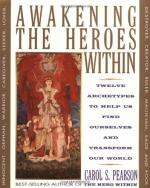|
This section contains 698 words (approx. 2 pages at 400 words per page) |

|
Chapter 16- The Sage, Chapter 17- The Fool Summary and Analysis
The Sage, like the Magician, is an assistant to the Ruler, but has different goals. The Sage seeks to understand reality, not change it. The Sage uses riddles and parables to express the truth and is engaged in finding truth. Young people look for truth and see that different groups have different philosophies and truths. The question arises, is there a way to formulate absolute truth? The author tends to reject absolute truth and stays within the Locke and Hobbes tradition of empiricism. In such a belief system, it is decisive what an individual commits to. These are his commitments within a relativistic worldview, that of empiricism. Empiricism can be defined as that which is shown by the five senses. In addition, the author thinks a person's...
(read more from the Chapter 16- The Sage, Chapter 17- The Fool Summary)
|
This section contains 698 words (approx. 2 pages at 400 words per page) |

|




